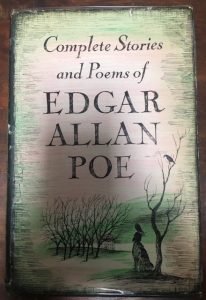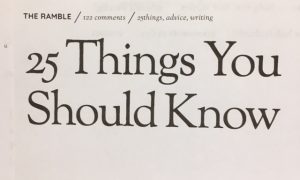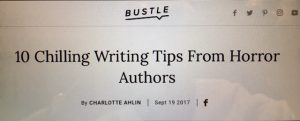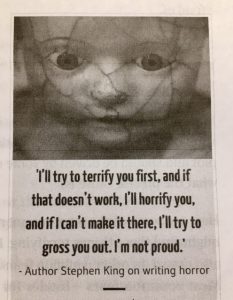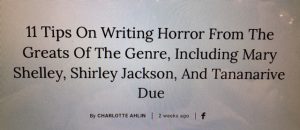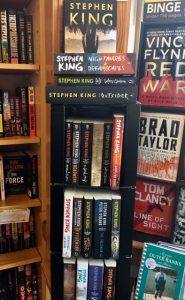Celebrate it on Goodreads! Here you will find their list of the 50 most popular horror books on Goodreads, “From Mary Shelley to Stephen King.” You can also read the Ghastly Horror Subgenres (sic), Book-to-Scream Adaptations, 13 True Tales of Terror, and—just for fun—The Nightmare Generator. My worst nightmare is supposed to be an incompetent vampire in the nursery. For my husband, it’s supposed to be a paranoid cannibal in the attic. FIND YOUR WORST NIGHTMARE!
Edgar Allan Poe is only one proof that well-written horror is well-written literature. It’s timeless. And every set of tips on how to write horror includes the observation that good writing, and all the elements thereof, are the foundation with horror being an add-on. “Horror” means an intense feeling of fear, shock, or disgust.
Now Novel is a good place to start if you are thinking of dipping your toe into this genre. According to this blog, the 5 common elements of the best horror stories are these:
- They explore malevolent or wicked characters, deeds, or phenomena.
- They arouse feelings of fear, shock, or disgust as well as the sense of the uncanny.
- They are intense.
- They contain scary and/or shocking and scintillating plot twists and story reveals.
- They immerse readers in the macabre.
The blog then goes on to discuss six tips:
- How to write horror using a strong, pervasive tone.
- The importance of reading widely in your genre.
- Giving wicked characters credible motives
- Using the core elements of tragedy
- Writing scary novels by tapping into common human fears.
- The difference between terror and horror.
If you want even more advice, you can find it at The Ramble. According to Chuck Wendig, horror is best when it’s about tragedy. It contains subversion, admonition, and fear of the unknown. Horror works on our minds, our hearts, and our gut. It can be gross, but that isn’t necessary. What is necessary is for characters you love to make choices you hate. “SEX AND DEATH ALSO PLAY WELL TOGETHER.” You should never tell readers they should be scared. He writes much more than this, of course.
In my opinion, one of the best sites is Bustle. It includes comments from ten authors, including Stephen King, who discusses gross-out, horror, and terror.
Advice from others includes:
- Shirley Jackson: Use your own fear.
- R.I. Stine: Get inside your narrator’s head.
- Tananarive Due: Don’t worry about being “legitimate.”
- Ray Bradbury: Take your nonsense seriously.
- Anne Rice: Go where the pain is.
- Clive Barker: The scariest thing is feeling out of control.
- Linda Addison: Just start writing and fix it later.
- Neil Gaiman: Tell your own story.
- Helen Oyeyemi: Keep it real (kind of).
And the advice goes on. Bottom line: This is the week to read and/or write a little horror!

